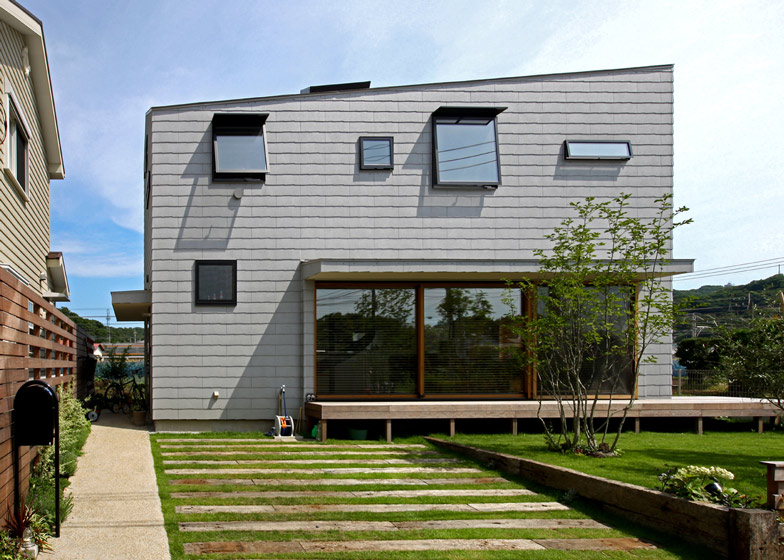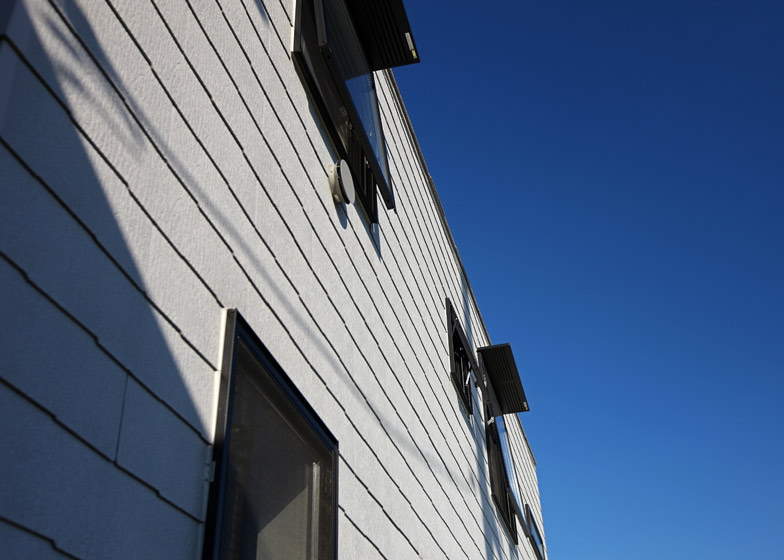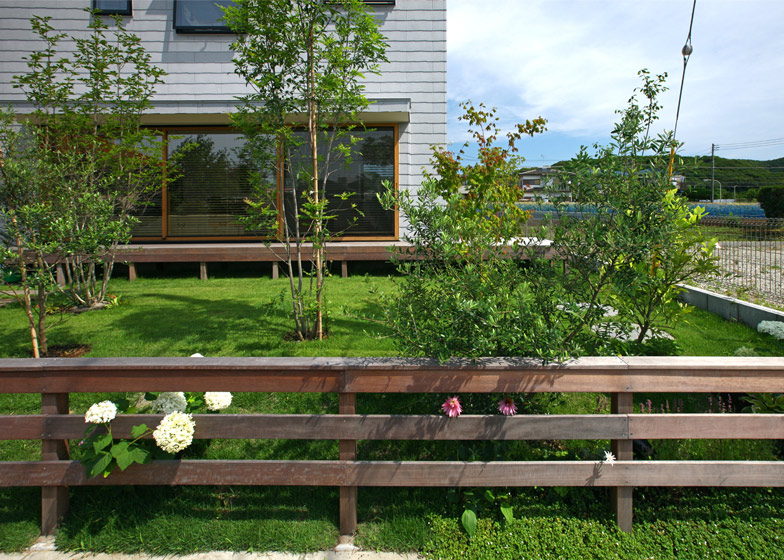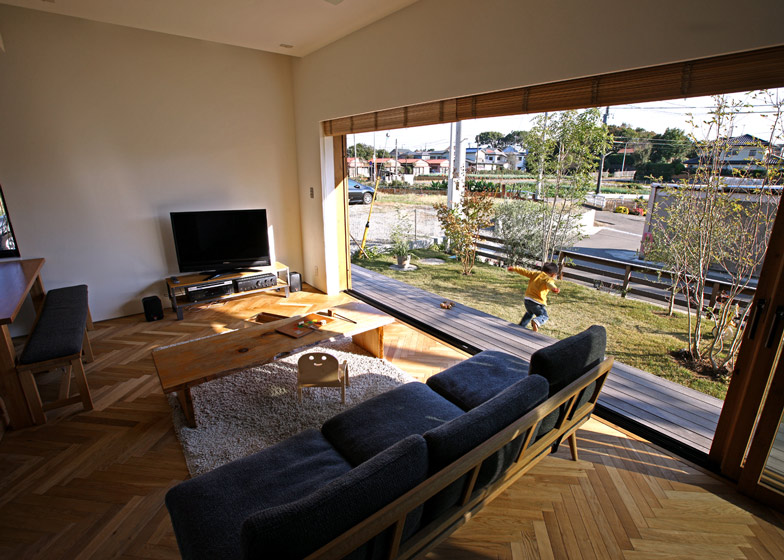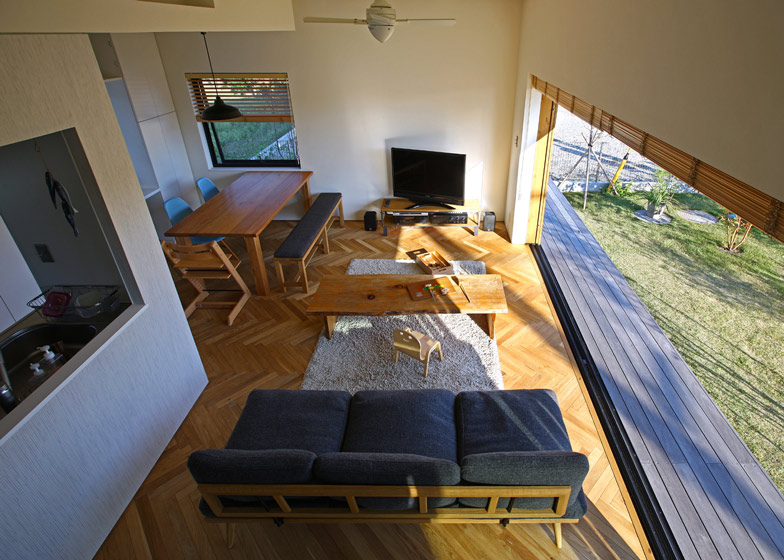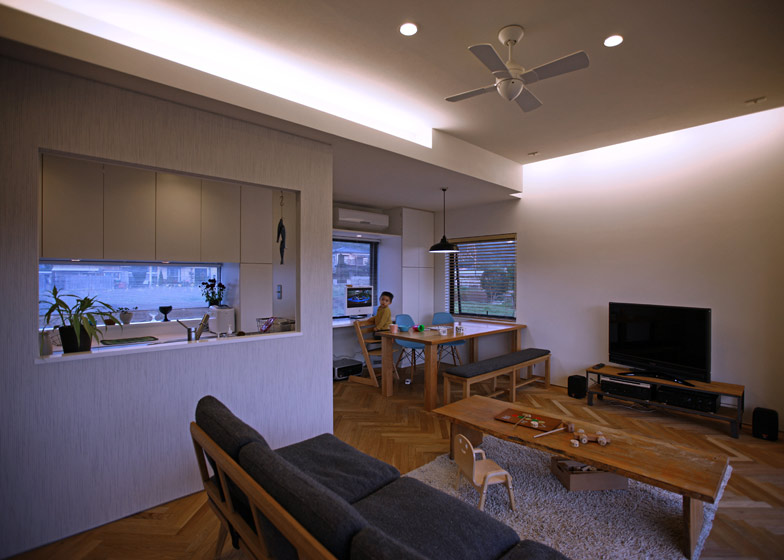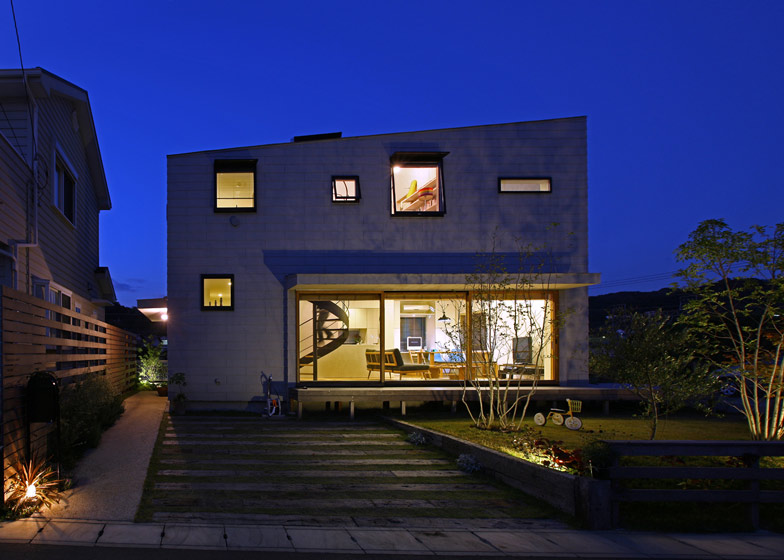The entire facade of this house in the Japanese town of Ōiso by Atelier HAKO Architects is clad in fibre-reinforced cement boards and punctuated by a series of scattered windows (+ slideshow).
The grey boards are typically used as a standard roofing material in Japanese housing developments but were also applied by Atelier HAKO Architects to cover the exterior walls.
Designed for a family with two children on a site near the Sagami Bay coastline of the Pacific Ocean, the cement boards also perform a practical role as they are resistant to corrosion from the salty air.
An offset gable gives the roofline an asymmetrical appearance, which helps the building stand out among its more conventional neighbours.
"The house was placed on the north side of the site in order to protect the garden from seasonal wind from [the] north in winter," said the architects, who incorporated small windows on the north facade and positioned larger windows on the south side of the building facing the garden.
The southern facade also incorporates large sliding windows that open onto a deck reminiscent of an "engawa", a strip of wooden flooring found between the living space and external storm shutters of traditional Japanese houses.
"[The] internal area was designed with an emphasis on continuity with the garden," explained the architects, who created an open plan living and dining area on the ground floor next to a kitchen with an aperture in the wall linking the two spaces.
A spiral staircase with a bottom tread that appears to hover above the ground connects the living room with a hallway on the upper floor where the bedrooms, bathroom and children's play area are also located.
Photography is by Shinsuke Kera / Urban Arts, unless stated otherwise.
Here are some details about the project:
The site is located at the edge of dwelling area close to the sea that is facing the agricultural land spread to the north-east mountain side.
The house was placed on the north side of the site in order to protect the garden from seasonal wind from north in winter.
Internal area was designed with an emphasis on continuity with the garden. In the south elevation, wide window and shallow depth wood deck which is like japanese traditional 'engawa' were provided as connect elements of the internal area and the garden, whereas other elevation was designed defensive to outside.
Triangular roof was slightly rotated with respect to the axis of the outer wall, the elevations got asymmetric shapes that offer humorous feeling at glance.
Fiber-reinforced cement board to be used usually as roofing material of mass production house in Japan was used as the exterior wall finishing material resistant to salt damage, thus overall architecture got abstract appearance covered with the same material all.
Name: House in Ōiso
Architect: Yukinobu Nanashima + Tomomi Sano / atelier HAKO architects
Structural engineer: Shin’itsu Hiraoka / Hiraoka Structural Engineers
Completion: March 2010
Location: Ōiso, Kanagawa Prefecture, Japan
Primary usage: private residence
Structure: wooden construction, two stories above ground
Site area: 155.31 m2
Building area: 44.86 m2
Total floor space: 89.72 m2

